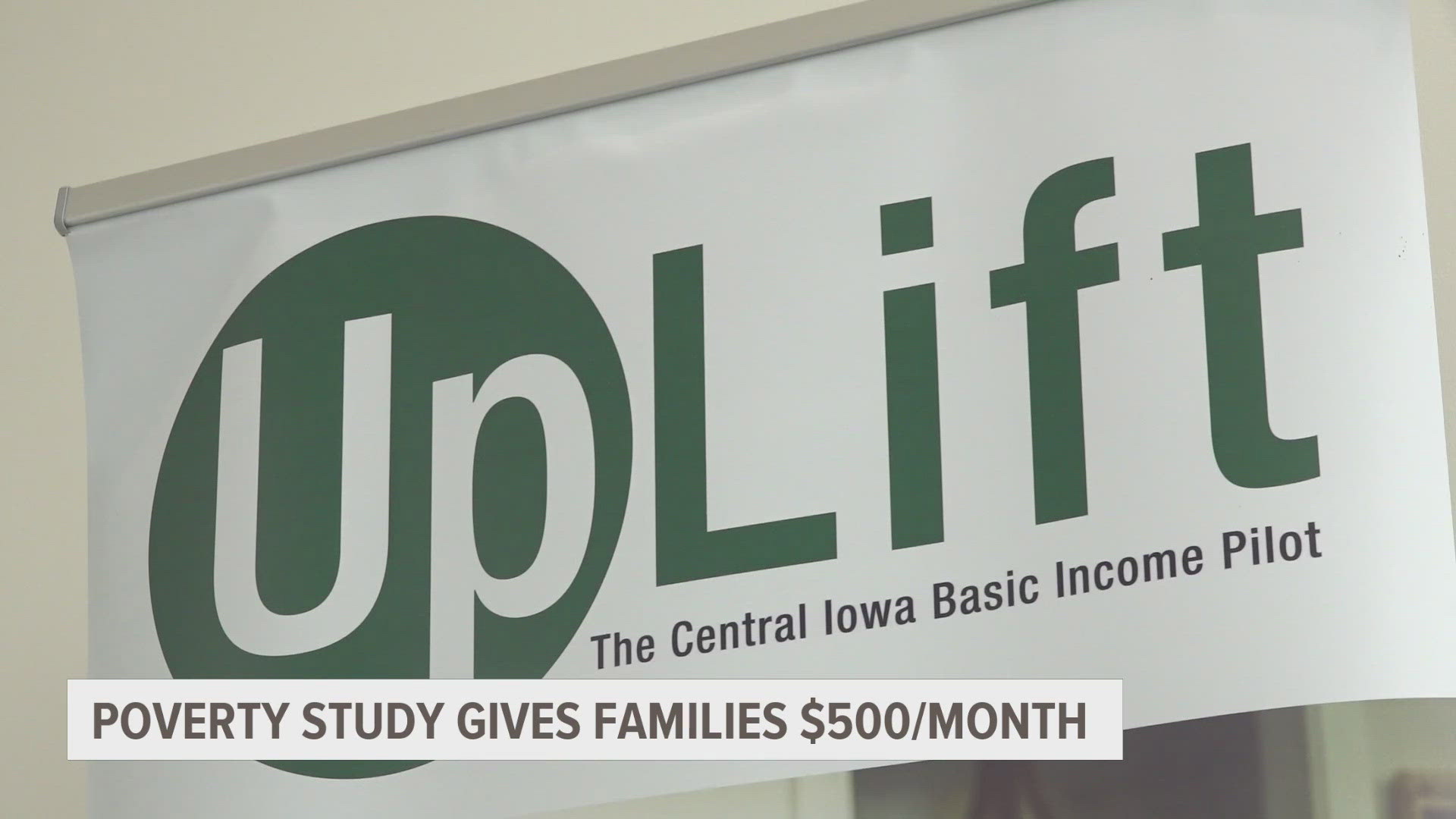DES MOINES, Iowa — For over a year, 110 Central Iowans have been receiving $500 a month, no strings attached, through UpLift’s research study on poverty.
This is what’s called a "guaranteed income program." Nationally, more than 150 guaranteed income programs have taken place or are currently taking place.
“The purpose is not for it to be enough for people to live off of alone, which is why we see that 68% of our participants were either full time or part time employed,” project coordinator Michael Berger said.
So far, 41.55% of the money has gone towards food and groceries, the largest share of any of the categories. That's followed by retail at 26.47% and transportation-related expenses at 11.39%.
Skye Onyx from Altoona is a single mom of two. She used the money for car payments so she could start attending classes at DMACC’s Workforce Training Academy and earn a certificate.
“If payments like these hadn't been received, that would have been really difficult to be able to accomplish,” Onyx said.
The certificate from the Workforce Training Academy allowed her to get a sterile processing technician job at a health center.
“I felt like I was able to finally have my career,” Onyx said. “It took long enough for me to get started, but it was just a really good feeling.”
In order to apply for the study people had to live in Polk, Dallas or Warren County and have at least one dependent 25-years-old or younger. They also were required to have an annual household income at or below 60% of the average median income. For a family of four in Polk County, that is $59,100.
“What we've heard so far, anecdotally, from our participants is that they're seeking new employment opportunities,” senior project coordinator Ashley Ezzio said. “We heard from folks who are becoming entrepreneurs. They're using this money to get ahead in life.”
At the end of the study the research team will compare the physical and mental health of the participants with a control group that didn’t receive payments.
Payments will end next April and the research team will release a full report with their findings in the summer of 2026.

